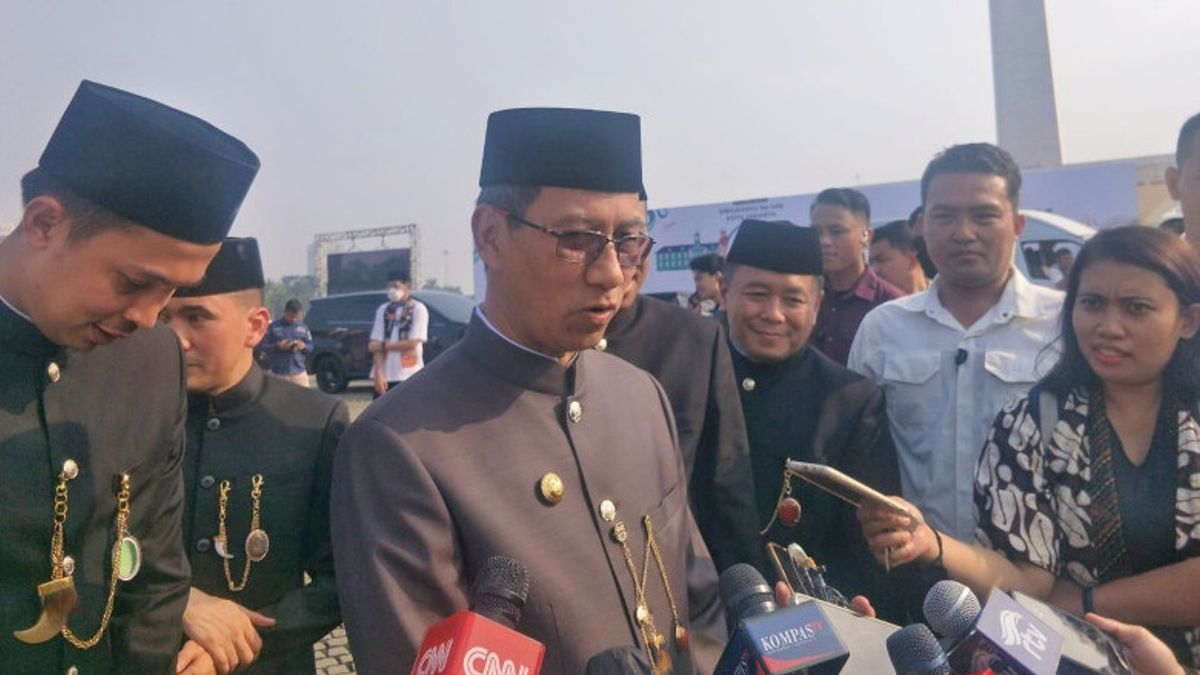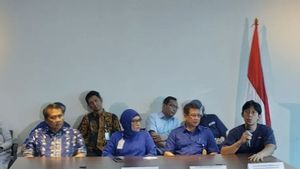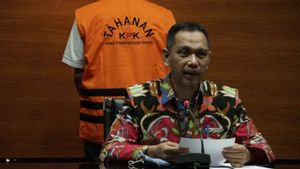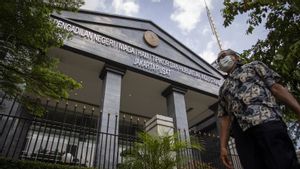JAKARTA - Acting Governor of DKI Jakarta Heru Budi Hartono said that his party had carried out efforts to control air pollution in Jakarta.
In addition to the policy of using electric vehicles, the DKI Provincial Government is also massively reforestationing or increasing green open space (RTH).
This was revealed by Heru in response to the summons of the Minister of Environment and Forestry Siti Nurbaya Bakar to the State Palace by President Joko Widodo, one of which discussed the poor air quality of Jakarta, some time ago.
"Of course there are steps from the Ministry of Environment and Forestry. DKI Jakarta involves short and long-term steps. Like us, here. Every week planting trees, the green open space is increased. That's the medium term," said Heru in the National Monument (Monas) area, Thursday, June 22.
Meanwhile, the short-term solution carried out by the DKI Provincial Government to reduce air pollution, Heru continued, is the transition of electric vehicles. The DKI Provincial Government is currently procuring purchases of cars and motorbikes from the electricity department to replace old vehicles that are still using fuel.
"Next, the DKI Provincial Government, through tax payments, has provided tax incentives. For people who buy electric vehicles, tax relief is given," he said.
SEE ALSO:
The government is wary of worsening air quality in Jakarta during the dry season. Head of the DKI Jakarta Environmental Agency, Asep Kuswanto, said that the air quality in the capital city will worsen until August.
"When entering the dry season from May to August, there will be a decrease in air quality in the DKI Jakarta area, which is marked by an increase in PM2.5 concentration. This happens because rainfall and low wind speeds will result in PM2.5 being accumulated and floating in the air for a long time," said Asep in his statement, Friday, June 16.
The results of PM2.5 concentration monitoring at the air quality monitoring station (SPKU) belonging to the DKI Jakarta Environment Agency show a diurnal pattern that indicates a difference in patterns between day and night. PM 2.5 concentration tends to increase in the early hours of the morning until morning and decreases in the afternoon to evening.
"In the late May-early period of June, the daily average concentration of PM2.5 was at the level of 47.33-49.34-mg/m3. During the period from May 21 to June 7, 2023, PM2.5 concentration in the DKI Jakarta area decreased in air quality and was in the moderate category to the unhealthy category," explained Asep.
The English, Chinese, Japanese, Arabic, and French versions are automatically generated by the AI. So there may still be inaccuracies in translating, please always see Indonesian as our main language. (system supported by DigitalSiber.id)













